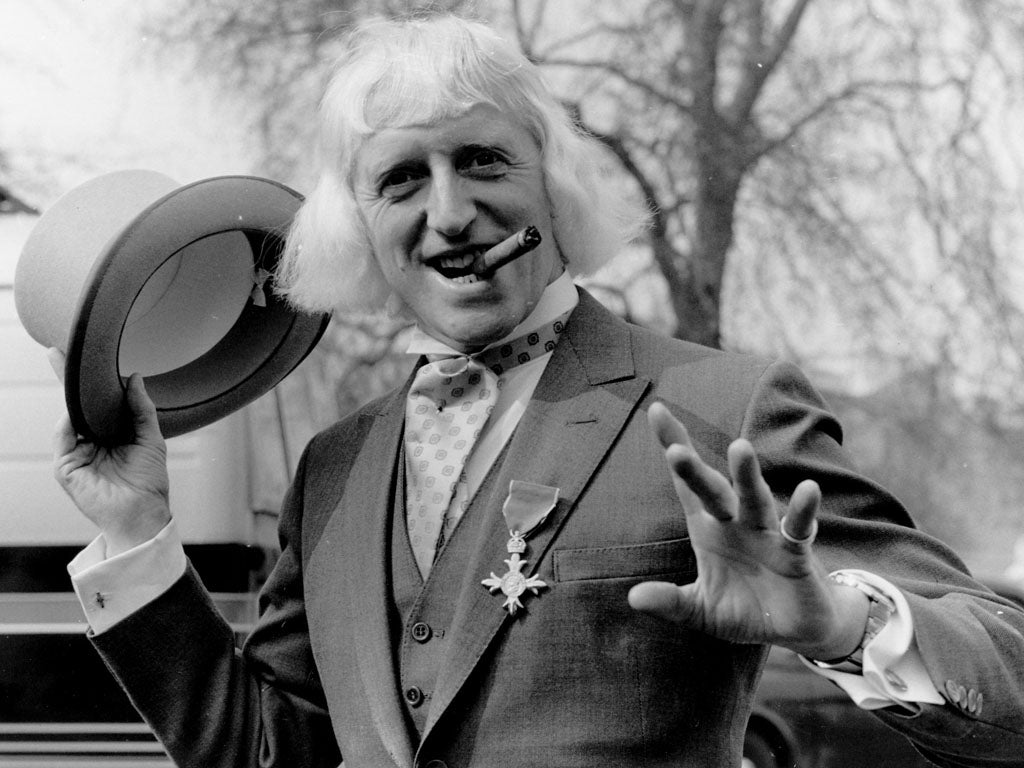Jimmy Savile: Would any jury have convicted him?
Is the cover-up - if there was one - really so incomprehensible?


There was always something disconcerting about Jimmy Savile beyond the clownish image he cultivated – something creepy that seemed to signal: stay clear. Now, 11 months after his death, it is becoming apparent what that something might have been.
As a child, I was never a fan. As an adult, like pretty much everyone else, I admired him for his fund-raising and for the way he (and his staff) made sad children’s dreams come true. The bleak truth, though, according to an ITV documentary to be broadcast tomorrow, is that he also left some children with nightmares. Nightmares they could not or would not articulate, or which, if they did, were met with disbelief.
The knives are now out in two directions. Some are pointed at Savile himself. Others are pointed at the media, but especially at the BBC, for – it is claimed – hushing up the star’s darker side. He was questioned by police in the 1970s, it is now confirmed, but no prosecution was brought.
In the cold hard light of posthumous inquiry, it is easy to condemn both Savile and his more or less willing protectors for concealing the truth about what were, in anyone’s book, heinous crimes. And, yes, it is scandalous if abused children were told that what happened to them did not happen and if Savile essentially blackmailed those who threatened to expose him with warnings that charitable donations would dry up.
But is the cover-up, if there was one, really so incomprehensible? Today, accusations of child sexual abuse or even rape would surely outweigh any considerations of fame or fund-raising. But then? Defenders of the film director Roman Polanski weighed genius v rape and found in favour of art – he remains a wanted man in only part of the world. But just last month a London heart surgeon, Philipp Bonhoeffer, was struck off for improper conduct with young boys while working for a charity in Kenya. He will never again be able to do the good that, perhaps in his mind, went some way towards compensating for the bad. His training and healing gifts are lost.
And what if, without first-hand testimony or actual evidence, a prosecution of Savile had failed? If he had successfully sued for libel? Hindsight is a wondrous thing. But in the end, it is we, public opinion and those who form it, who test the crime against the cost of its exposure. Would any jury have convicted Savile at the height of his career?
With his granite headstone now marking the grave he specified, in Scarborough, at an angle of 45 degrees to the sea, an apt epitaph might be from Shakespeare: “The evil that men do lives after them; the good is oft interred with their bones.” In this day and age, though, can we not permit a reservation? While the evil will undoubtedly live on, should we really be so quick to bury the good? Savile should be allowed to be as complex in death as he was, it now appears, in life.
Join our commenting forum
Join thought-provoking conversations, follow other Independent readers and see their replies
Comments
Bookmark popover
Removed from bookmarks